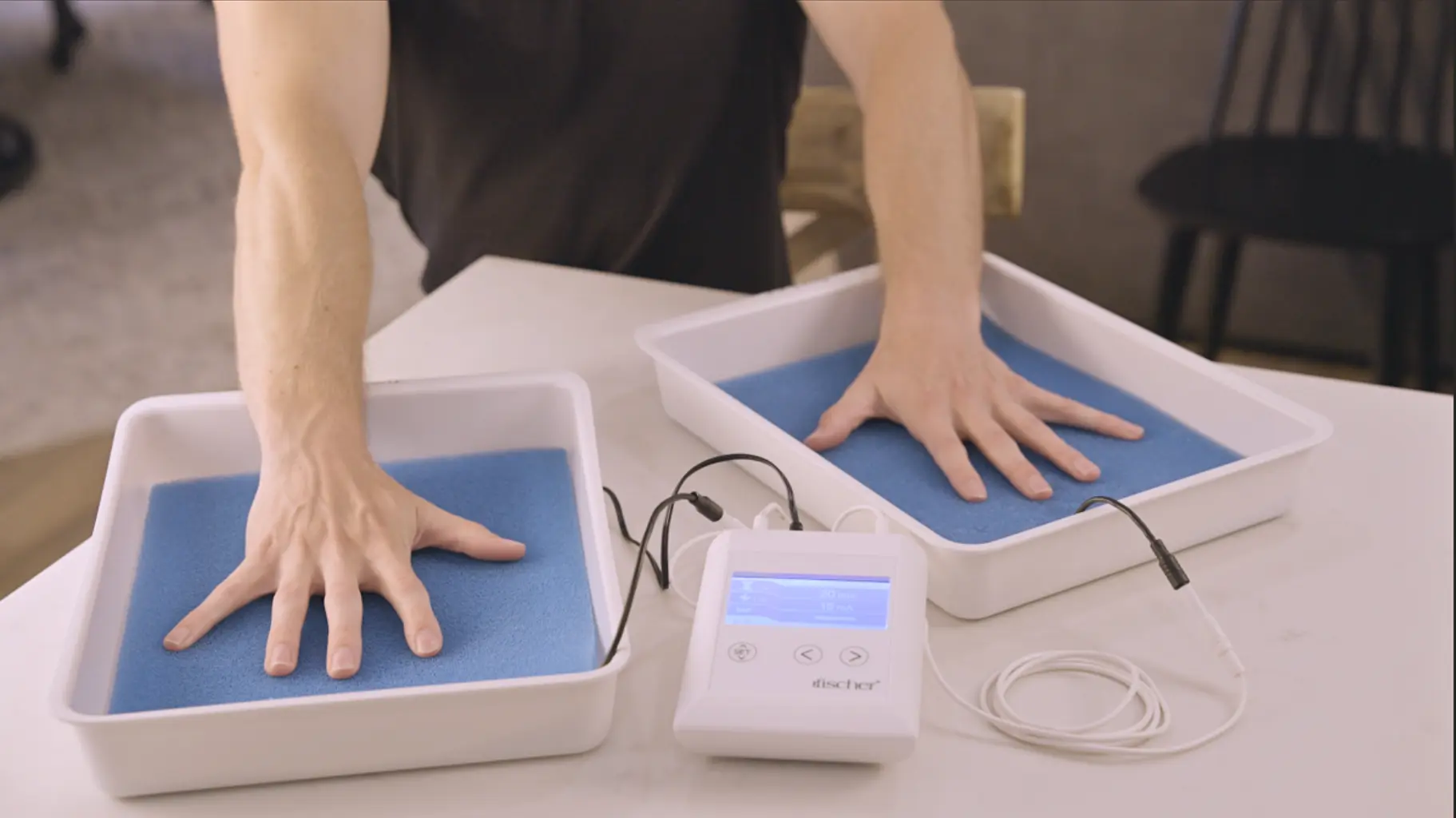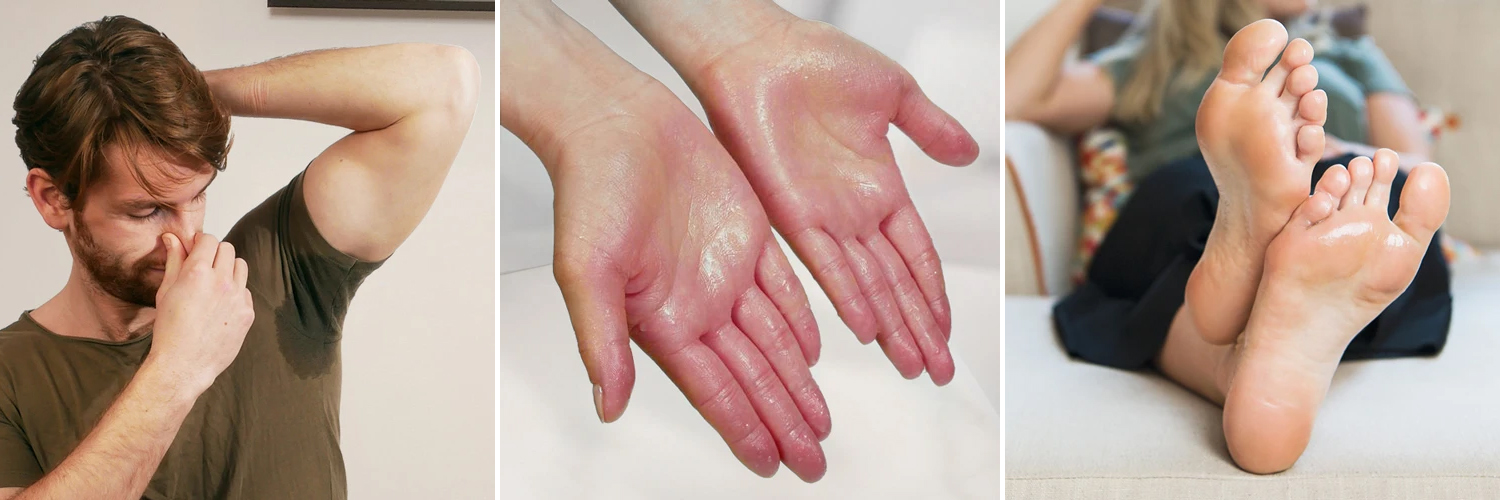Recognizing Excessive Sweating: Dermatology Insights on How to Stop Sweaty Hands
Recognizing Excessive Sweating: Dermatology Insights on How to Stop Sweaty Hands
Blog Article
Understanding the Origin of Excessive Sweating and Its Impact on Life
Extreme sweating, additionally called hyperhidrosis, is a condition that affects a significant part of the population, yet its underlying reasons and ramifications on day-to-day working stay somewhat enigmatic. While it is commonly recognized as a physiological action to regulate body temperature, the triggers for extreme sweating can differ commonly among people, encompassing not just physical variables but psychological and additionally emotional components. Additionally, the impact of this condition prolongs beyond simple pain, commonly influencing social interactions and total lifestyle. By delving into the origin of hyperhidrosis and exploring its complex impacts, a deeper understanding of this pervasive issue can be gotten, dropping light on the intricacies that individuals facing too much sweating browse each day.
Physiology of Sweat Glands
The regulation of sweat manufacturing, a vital physical process, is largely managed by the activity of sweat glands distributed across the body. Gland are categorized into 2 major kinds: eccrine and apocrine glands. Eccrine glands are one of the most many and are discovered in mostly all areas of the body. They play an essential role in thermoregulation by producing a watery fluid onto the skin's surface area, which vaporizes and aids cool down the body down. On the other hand, apocrine glands are concentrated in locations rich in hair follicles, such as the armpits and groin, and their secretions are thicker and milky in appearance.
When the body temperature rises, either as a result of physical task, heats, or psychological anxiety, the nerve system sets off the sweat glands to create sweat. This sweat is made up mostly of water and electrolytes like sodium and chloride. The process of sweat manufacturing is necessary for maintaining the body's interior temperature level within a narrow, optimal variety, highlighting the important function gland play in human physiology.
Triggers for Excessive Sweating
In recognizing the origin causes of extreme sweating, it is essential to determine the triggers that can lead to this physical action. Physical effort, high temperature levels, and spicy foods are additionally recognized to cause excessive sweating in people prone to this condition.
Furthermore, medicines such as some antidepressants, opioids, and specific supplements can likewise serve as triggers for hyperhidrosis. Recognizing these triggers is important in handling too much sweating properly - Sweaty hands treatment. By determining and addressing the specific triggers that trigger excessive sweating in an individual, healthcare companies can establish individualized therapy strategies to minimize this problem and boost the individual's top quality of life
Medical Issue Associated
Linked with extreme sweating are different clinical conditions that can worsen this physiological feedback. One usual problem is hyperhidrosis, a problem characterized by extraordinarily boosted sweating that surpasses the body's thermoregulatory needs. This can show up in focal areas like the palms, soles, underarms, or face, impacting an individual's lifestyle due to social shame and discomfort.
Furthermore, endocrine conditions such as hyperthyroidism, diabetes mellitus, and menopausal hot flashes can also result in excessive sweating. Hyperthyroidism triggers an overproduction of thyroid hormonal agents, increasing metabolic process and causing sweating. Diabetes mellitus can cause sweating episodes, especially throughout hypoglycemic episodes when blood sugar degrees drop also low. Menopausal hot flashes, credited to hormone variations throughout menopause, can cause extreme and unexpected sweating, often gone along with by flushing and heart palpitations.
Furthermore, infections like hiv, tuberculosis, and endocarditis have actually been related to evening sweats, a typical symptom known to interfere with sleep and affect general health. These clinical problems highlight the varied array of underlying elements that can add to too much sweating, necessitating comprehensive assessment and monitoring by healthcare link professionals.
Emotional and Psychological Factors

Influence On Social Interactions
Too much sweating can have extensive impacts on an individual's ability to engage comfortably in social communications. The noticeable indications of sweat stains or damp spots on clothing can bring about shame and self-consciousness, triggering people to withdraw from social circumstances. This withdrawal can impact relationships, limitation social activities, and prevent individual and professional growth.

Furthermore, the anxiety and self-esteem concerns stemming from excessive sweating can affect interaction and social abilities. People might have a hard time to concentrate on discussions, get involved in group tasks, or express themselves with confidence. This can result in sensations of seclusion and isolation, as social links become testing to preserve.
Final Thought

While it is generally comprehended as a physiological feedback to control body temperature level, the triggers for extreme sweating can differ extensively among individuals, incorporating not just physical elements yet additionally psychological and click here for more info emotional components. By diving right into the root causes of hyperhidrosis and exploring its complex effects, a deeper understanding of this pervasive issue can be obtained, dropping light on the complexities that people grappling with excessive sweating browse on a daily basis.
Physical effort, high temperatures, and spicy foods are additionally understood to cause extreme sweating in individuals vulnerable to this problem. By Full Report determining and dealing with the certain triggers that motivate excessive sweating in a private, healthcare companies can establish personalized therapy strategies to reduce this problem and improve the individual's top quality of life.
Too much sweating can have profound results on a person's ability to involve easily in social communications.
Report this page